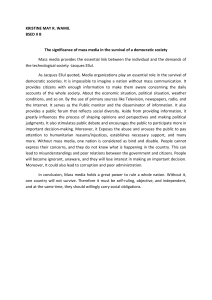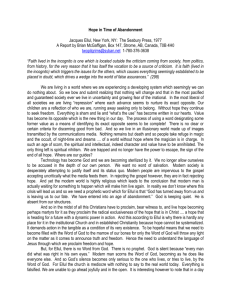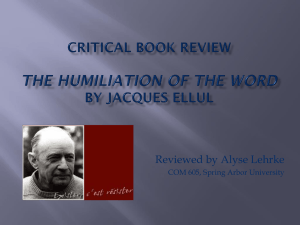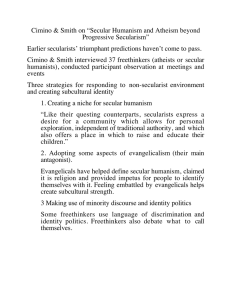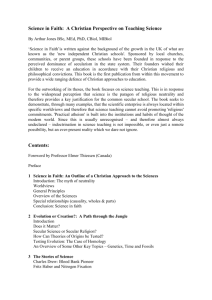The American Wedding of Church and State
advertisement
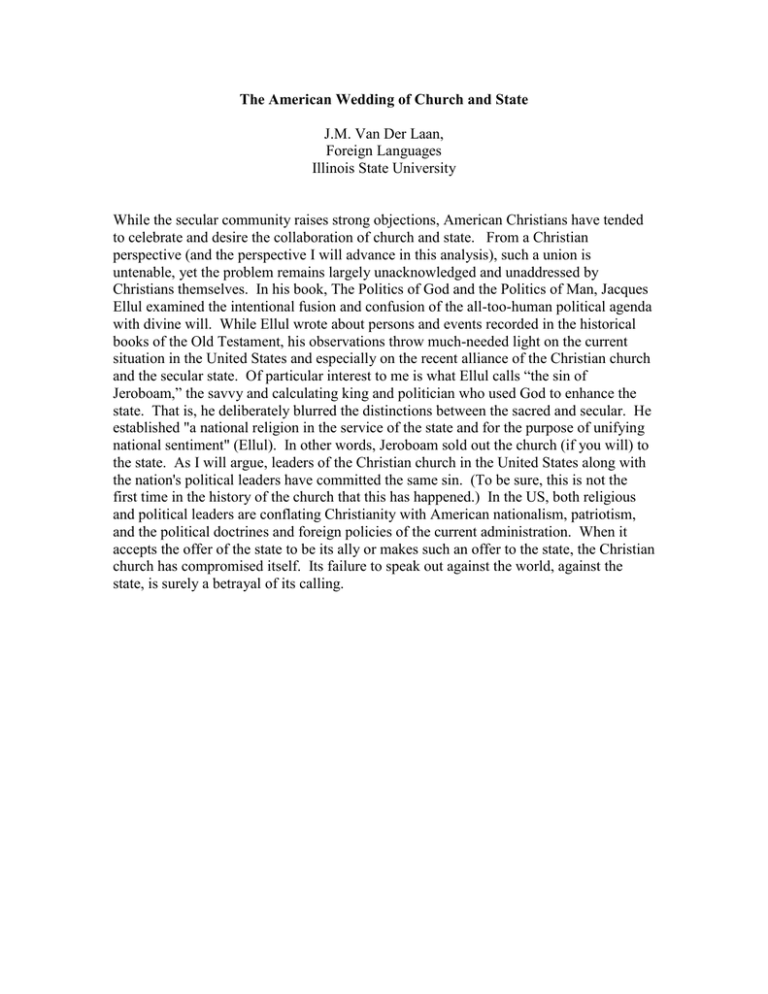
The American Wedding of Church and State J.M. Van Der Laan, Foreign Languages Illinois State University While the secular community raises strong objections, American Christians have tended to celebrate and desire the collaboration of church and state. From a Christian perspective (and the perspective I will advance in this analysis), such a union is untenable, yet the problem remains largely unacknowledged and unaddressed by Christians themselves. In his book, The Politics of God and the Politics of Man, Jacques Ellul examined the intentional fusion and confusion of the all-too-human political agenda with divine will. While Ellul wrote about persons and events recorded in the historical books of the Old Testament, his observations throw much-needed light on the current situation in the United States and especially on the recent alliance of the Christian church and the secular state. Of particular interest to me is what Ellul calls “the sin of Jeroboam,” the savvy and calculating king and politician who used God to enhance the state. That is, he deliberately blurred the distinctions between the sacred and secular. He established "a national religion in the service of the state and for the purpose of unifying national sentiment" (Ellul). In other words, Jeroboam sold out the church (if you will) to the state. As I will argue, leaders of the Christian church in the United States along with the nation's political leaders have committed the same sin. (To be sure, this is not the first time in the history of the church that this has happened.) In the US, both religious and political leaders are conflating Christianity with American nationalism, patriotism, and the political doctrines and foreign policies of the current administration. When it accepts the offer of the state to be its ally or makes such an offer to the state, the Christian church has compromised itself. Its failure to speak out against the world, against the state, is surely a betrayal of its calling.
